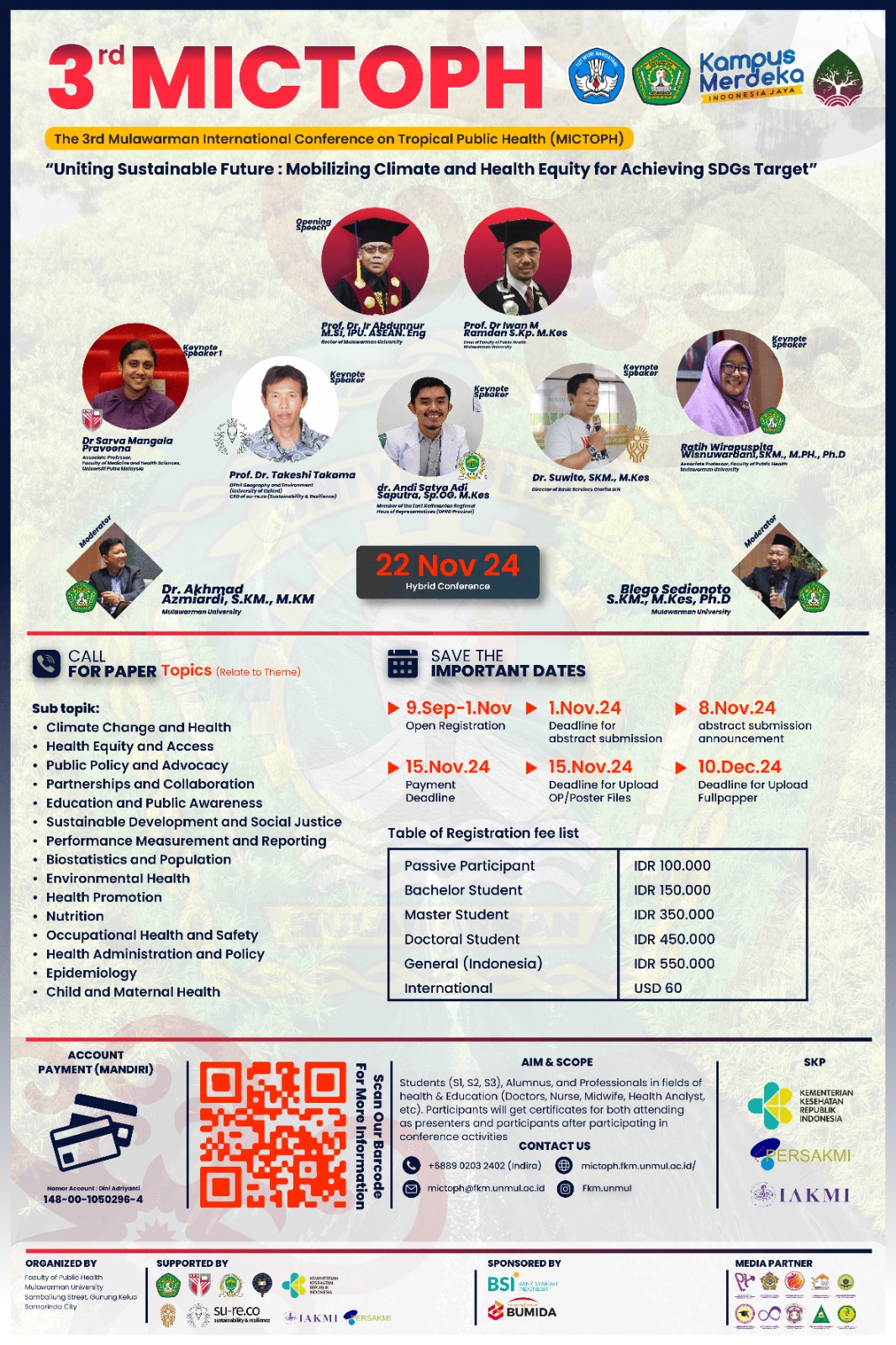Empowering Parents: A Pathway to Improved Reproductive Health and Stunting Prevention in Adolescents
Keywords:
reproductive health, adolescents, the role of parents, promiscuity, communicationAbstract
Background : MAdolescence is a developmental transition from childhood to adulthood that is characterised by changes in various domains, including biological, psychological and socio-cultural aspects. The World Health Organization (WHO) has estimated that by 2023, there will be 1.4 million children (aged <15 years) and 38.6 million adults (aged 15+ years) living with HIV disease. Additionally, the WHO has reported that 777,000 girls under the age of 15 give birth each year in developing countries. Pregnancy and childbirth complications represent a significant cause of mortality among girls aged 15-19 years globally. The percentage of adolescents in Dusun 01, Semoi Dua Village, who are aware of reproductive health issues is 43.2%, according to primary data. Objective : The objective of implementing the GERULI KERABAT intervention programme is to facilitate parental comprehension of adolescent reproductive health, thereby enabling parents to become effective guides for their adolescents in dealing with the various reproductive health issues. Research Methods/ Implementation Methods : Parents' understanding is enhanced through educational interventions combining lectures and open discussion. Results : The results indicate a statistically significant difference between the pre-test and post-test scores of the GERULI KERABAT intervention programme participants (p=0.000, p<0.05). Conclusion/Lesson Learned : According to the results of the intervention activities, it can be concluded that the success indicators of the GERULI KERABAT programme have been achieved due to an increase in the knowledge of participants who have participated in the intervention programme activities.





